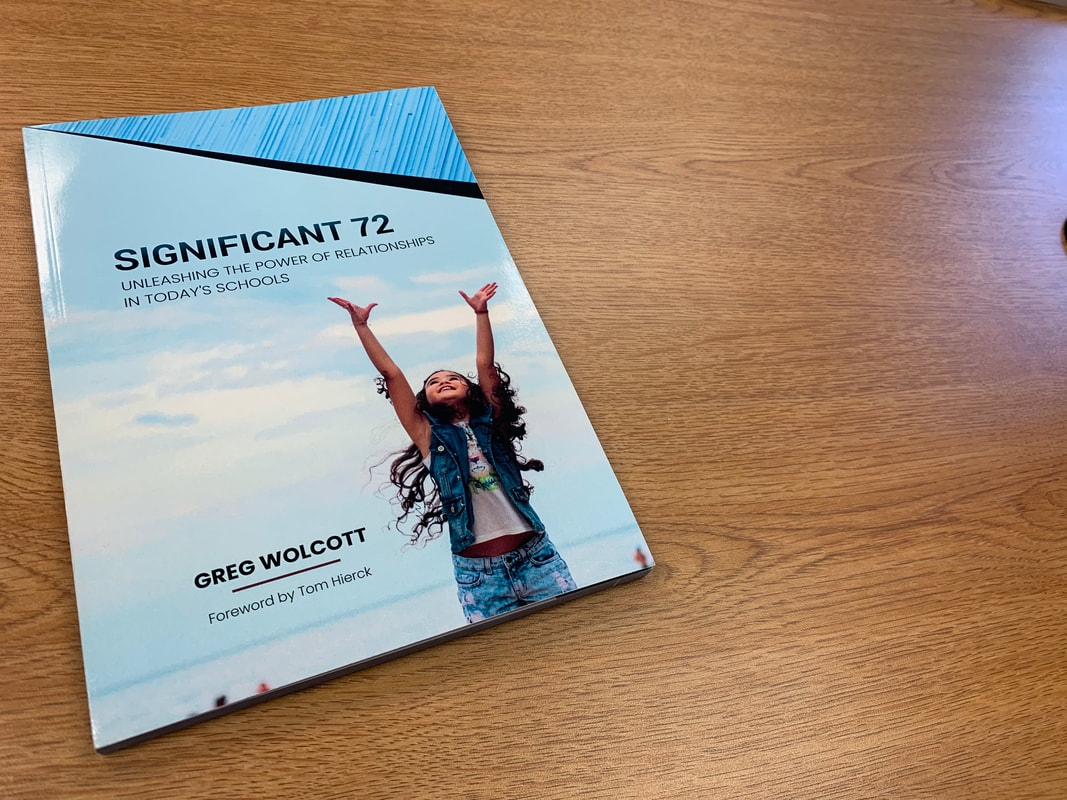What is 'Significant 72"?In his ground breaking book, Visible Learning (2008), Dr. John Hattie set out to identify which strategies and innovations have the greatest impact on student achievement in schools. Hattie found teacher-student relationships to have an effect size of .72. An effect size of this quantity equates to an estimated to produce two year's student growth in one year's time...significant to say the least
As educators around the world struggle to identify and implement new, more effective strategies each year, they often take for granted the most fundamental; relationship building!
Creating strong, authentic relationships with and between students is a teacher's number one responsibility! "Significant 72" is an initiative implemented in over two hundred schools aross the United States and Canada. This school improvement effort places a premium on the development of relationships in the classroom. How does "Significant 72" work?"Significant 72" begins yearly when staff set aside the first three days of school (72 hours) to begin developing strong teacher-student and student-to-student relationships. During this time, the motto is "Connections Before Curriculum". All instructional time during this critical period is spent accomplishing the following:
1. Teachers start learning facts about each child.
#SIG72: Throughout the YearGetting to know students is not something that can be accomplished in just three days. Therefore, it is suggested that teachers continue to purposefully set time aside to continue relationship development throughout the year.
|
#SIG72: Every DayWhen students feel a sense of belonging, a sense of safety develops. Hattie states his beautifully when he says, "The positive teacher-student relationship is thus important not so much because this is worthwhile in itself, but because it helps build the trust to make mistakes, to ask for help, to build confidence to try again, and for students to know they will not look silly when they don’t get it the first time."
Therefore, relationships should be cultivated daily. An easy way to do this is to set aside 72 seconds (36 seconds each child) on brief "get to know you" questions prior to having students pair-share. Older students love answering "Would you rather?" questions in much the same way. The simple act of setting time aside daily has lasting impact. #SIG72: Every Month Teachers can take the concept one step further by setting aside "72 minutes a month" for team-building activities. These larger group tasks may take a little bit more time, but they allow students to have a lot more fun, while also learning a tremendous amount about each other.
#SIG72: After Extended BreaksA lot happens in a child's life over a three-day weekend and/or during extended time off from school. It can be challenging for some students to get back into a routine and continue feeling safe after events such as Thanksgiving break, winter break or spring break. After these interruptions, teachers can pause to reunite students and get them excited to be back working with their teacher and friends. Reconnecting like this is particularly important for students who have troubling home lives .
|
#SIG72 Activities for the Classroom
"WE""WE" activities not only help teachers get to know more about individual students in the classroom, they help students learn about specific peers or a particular small group within the classroom. "WE" movements are particularly useful in helping students get to know one another more deeply.
"WE" moments should be built into every class period, whether at the start as a bell-ringer, during as a break to develop common ground before answering a question, or at the end of class as part of a wrap-up/closing. "WE" movements are particularly helpful in developing empathy and igniting compassion amongst students. |
"US""US" activities help teachers learn how students interact as a group and allow individual students an opportunity to learn about their classmates through fun, non-threatening activities. These are whole group, team builders, designed to help teachers see how students work together as a larger unit. "US" activities often enable teachers to see students using strengths not typically noticed during most daily classroom instruction.
"US" moments should occur anywhere from two to three times a week in an elementary classroom to weekly at the high school level. Not only do "US" activities foster a sense of community and belonging amongst students, they quickly create an atmosphere in which students feel it is ok to take chances and make mistakes in front of peers. 29 Great Icebreakers for the Classroomwww.mmsa.info/sites/default/files/Icebreakers%21.pdf
|


